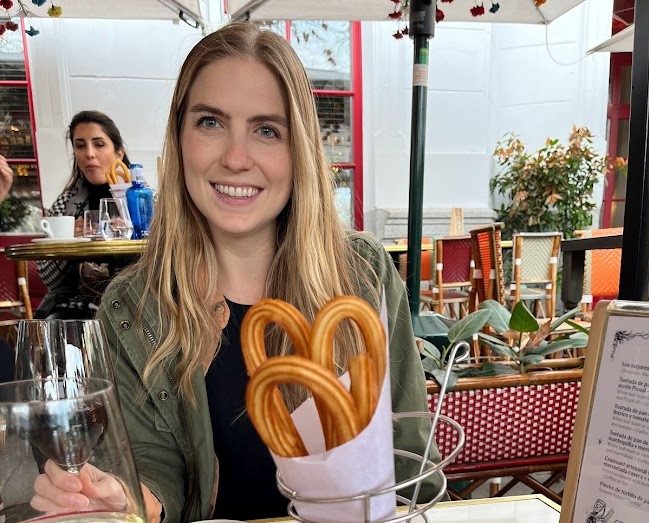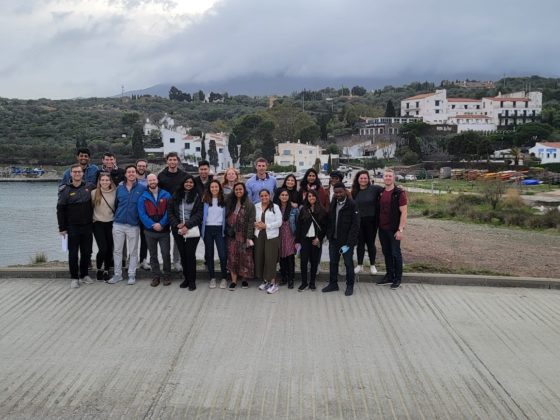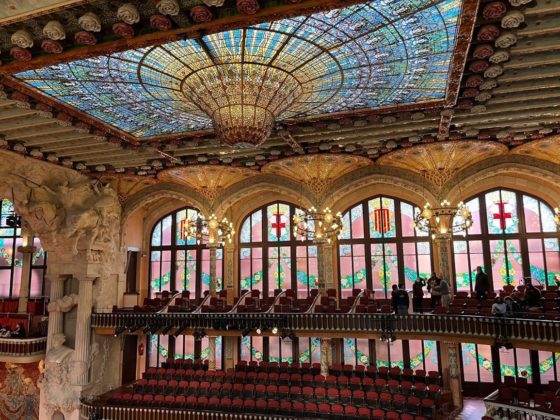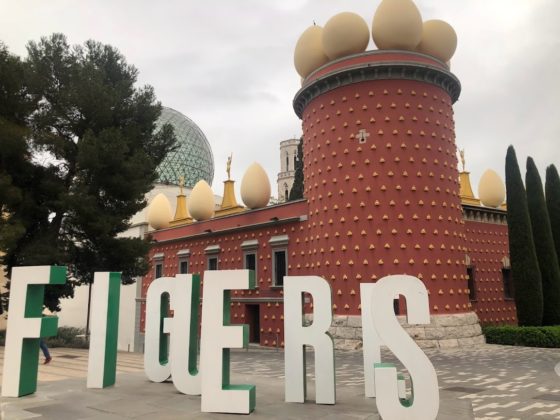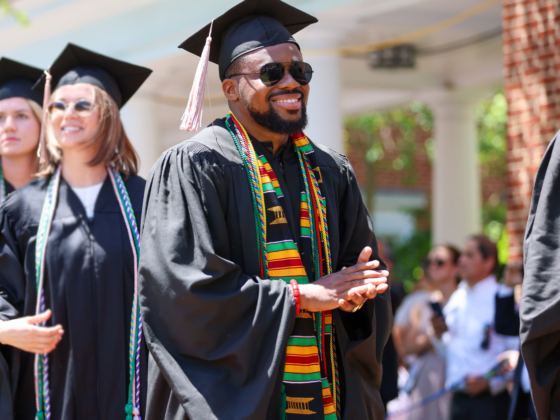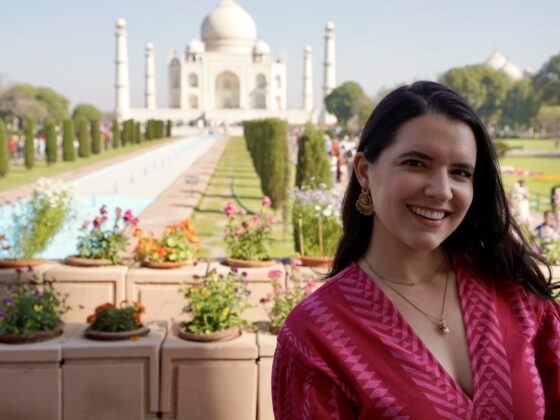Amy Gill (Class of ’22) is a second year Darden MBA student focused on healthcare business strategy. Last summer, Amy completed an internship at Health First, where she worked as a Corporate Strategy intern. After graduating, Amy will be joining Optum, in their Optum Leadership Experience (OLE) program. Amy recently completed a weeklong Darden Worldwide Course focused on Design Thinking in Spain and offered some reflections on her experience.
Tell us about yourself, Amy!
I grew up in Richmond and attended UVA as an undergrad, so Charlottesville is like a second home to me. I studied Human Biology and Bioethics in the College of Arts and Sciences. The nature of the distinguished majors program allowed me to design an interdisciplinary, liberal arts degree in healthcare and biological sciences that fit my career aspirations. Before returning to Charlottesville to attend Darden, I worked as a healthcare consultant in Washington, D.C. Most of my clients were large health systems engaged in strategic and operational transformations. I fell in love with the work and decided to pursue my MBA with the hopes of leading change and transformation in the healthcare space— and making an impact early on in my career.
What are some of your biggest takeaways from this program? How do you think learning about art and culture can help you in the business world in the future?
The Spain DWC was unique among many of the other programs. Many programs focused on “Doing Business in XYZ country.” Our program, however, focused on “Creativity and Design in Barcelona”. The course, led by Randy Salzman and Jeanne Liedtka, took a deep dive into our personal journeys toward more creative thinking through the exploration of art and architecture in Barcelona. We learned about the lives and historical contexts of three renowned creatives— Picasso, Gaudi, and Dali— and spent most of our time wandering museums and neighborhoods in Barcelona.
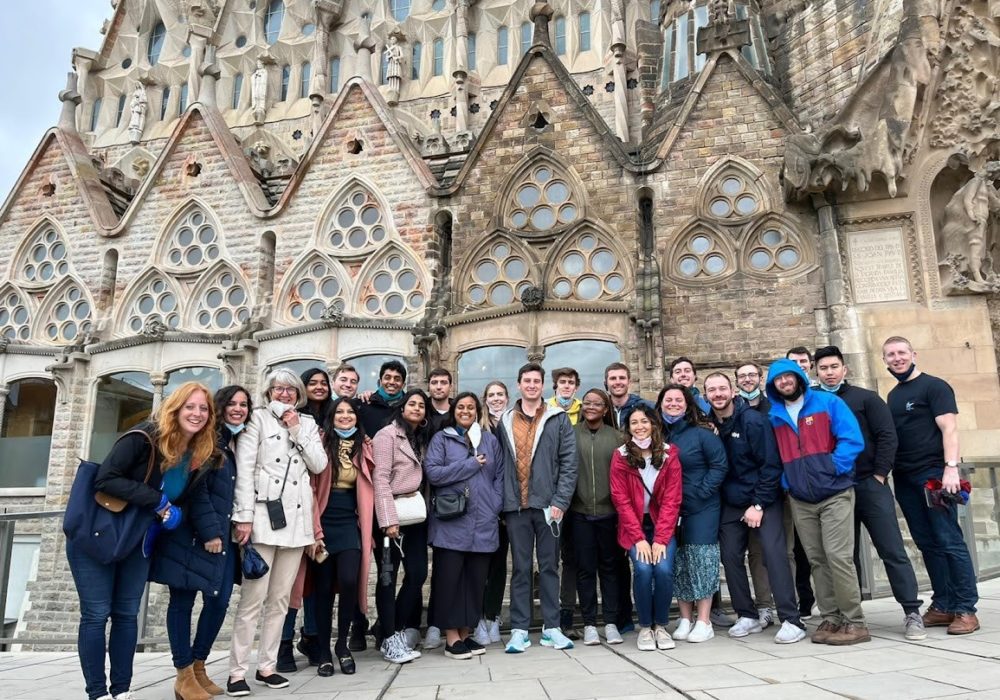
Our small group discussions and Jeanne’s insights connected our self-discovery process to organizational design and people management. These discussions and insights were highlights for me, particularly as someone interested in leading organizational transformation work after Darden. During my summer internship, we discussed experiential learning as a key step in driving organizational change, but were often challenged by the time constraints of the workplace in designing and implementing such experiences. With the Spain DWC, the time we had away from school and other commitments provided an opportunity for truly experiential learning. Salz and Jeanne modeled the style of leadership required in the design thinking process to promote creativity and learning through self-discovery rather than telling or explaining.
My biggest takeaway re-entering the workforce after graduation will be to continuously push myself to get better at conveying new ideas or expectations— whether that be through metaphors, visual communication, or by spending more time asking questions of my colleagues rather than answering them.
What was one unexpected insight or experience you gained from participating in the Spain DWC?
I was surprised and even a little confused at first when Salz and Jeanne suggested that we would be holding off on any real discussion of business or design thinking strategy for the first half of the course. After the first afternoon we spent sharing our reactions to the Picasso museum, I joked with a classmates how clear it was from the discussion that we were all business students and not art history majors; however, looking back at the experience, it feels obvious that we would avoid making connections to our work and career aspirations right away. Many of us have that tendency and desire to “get to the point” or start problem-solving. While it can be useful in many contexts, it can also stifle creativity. This is a lesson I plan to keep in mind when planning meetings, retreats, or other experiences in the future. If the goal is to generate creative, innovative ideas, you have to be willing to give people time and space.
How did these experiences expand your global perspective?
The Spain DWC trip was my first time in Europe and so the experience very literally expanded my global perspective! With Barcelona being both such a cosmopolitan and friendly city, I never felt out of place or uncomfortable with my limited Spanish speaking skills. However, every interaction with locals and other tourists served as a learning experience. In chatting with transplants to Barcelona and Madrid, the interconnectedness of different cultures across Europe and fluidity of work opportunities between countries struck me. The mutual curiosity about life in each other’s home country and perspective on current events globally was extremely encouraging to experience.
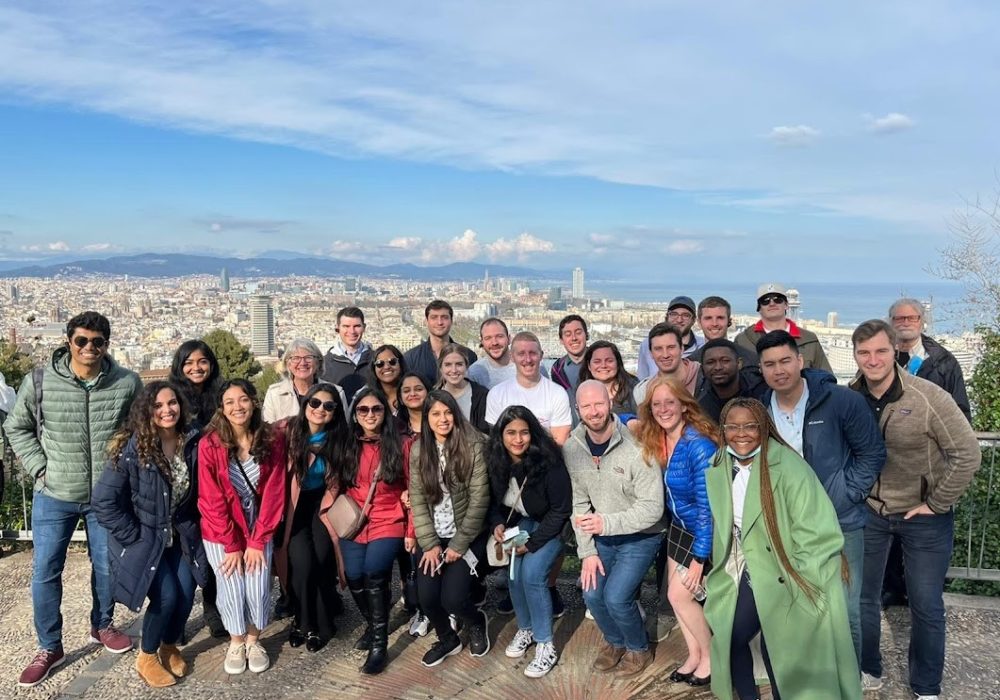
In our class discussions, we frequently shifted from a hyper-local perspective (focusing on the artist’s family life, relationships, and religious and historical context) to global perspective (in our reactions to the works and their universal appeal). It reminded me of Ming-Jer’s Cases in Global Strategy seminar, where we were encouraged to consider business contexts through a local-regional-global lens. The capacity to keep both in mind throughout the design thinking process is key to developing more creative and effective products and solutions.
Do you have any advice for students considering participating in the Spain program?
I would highly recommend the Spain DWC. Whether you have visited Spain before or it would be your first time, it’s a great experience! The DWC program and scholarship covers so much and curates experiences, like visiting the inside of the Sagrada Familia, which would be difficult to plan on your own. Beyond the course, it is hard to think of a better place to explore than Barcelona for food, drink, and culture. I could write an entire article on the dining experience alone. Plus, you have endless options for day trips.

